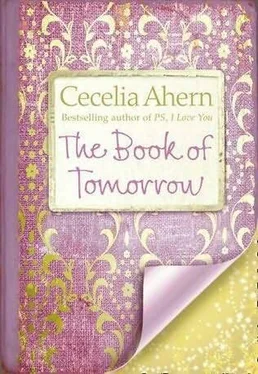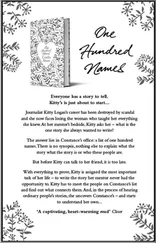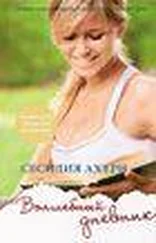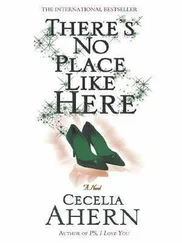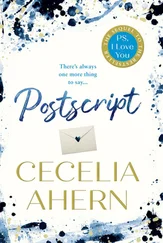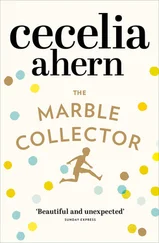She noticed how, whenever Mr Kilsaney had a decision to make, he’d disappear into the oak room and stand in the middle with his hands behind his back while he stared at the portraits of his forefathers, who grandly watched over him from their great big oil paintings with elaborate gold framing. He would exit the oak room, chin high, fired into action as though he was a soldier who’d just received a good talking-to from his sergeant-major.
She also saw how Mrs Kilsaney, who was so besotted with her nine dogs and ran around the house in a frenzy, trying to catch them, failed to notice much of what went on around her. She paid more attention to her dogs, in particular the mischievous King Charles spaniel named Messy, who remained the only dog who couldn’t be tamed and who took up most of her thoughts and most of her conversation. She didn’t notice her two young boys play-acting around the halls for her attention, or her husband’s fondness for the none-too-attractive chambermaid Magdelene, who revealed a black tooth when she smiled and who spent much time dusting the Kilsaneys’ master bedroom when Mrs Kilsaney was outdoors with the dogs.
The little girl noticed that what made Mrs Kilsaney mad was dead flowers. She would inspect every vase as she passed, almost as though it were an obsession. She would smile with delight when the nun would arrive every third morning with fresh bouquets from her walled garden. Then, as soon as the door closed, she would pick at them, while grumbling, pulling out anything that was less than perfect. The little girl loved Mrs Kilsaney, loved her tweed suits and brown riding boots, which she wore even on days when she wasn’t riding. However, the little girl decided she would never allow so much to go on in her own home without her knowing. She adored the mistress, but she thought her a fool.
She didn’t think much of the husband frolicking in plain sight with the ugly chambermaid, tickling her behind with a feather duster and acting younger than the little girl herself. He thought she was too young to notice him, too young to understand. She didn’t much like him, but he thought her a fool.
She watched everything. She made a pact with herself always to know everything going on in her home.
She loved watching the two boys. They were always up to mischief, always racing around the halls knocking things over, breaking things, making the chambermaid scream, causing a ruckus. It was the older one she watched all of the time. It was always he who initiated the plan. The younger one who was more sensible and went along with it only because he wanted to look out for his older brother. Laurence was the elder, or Laurie, as they called him. He never noticed the little girl, but she was always there on the outskirts, feeling involved without being invited, playing along in her imagination.
The younger boy, Arthur, or Artie, as they called him, noticed her. He didn’t invite her to play, he didn’t do anything of his own accord, he merely followed his brother’s ideas, but if Laurie did something silly he’d look to the little girl and roll his eyes or make a joke for her benefit. She’d rather he didn’t. It was Laurie she wanted to notice her and the more he didn’t see her, the greater her longing grew. Sometimes when he was alone and running, she would deliberately stand in his way. She’d want him at least to look at her or stop, or shout at her, but he never did. He ran around her. If he was searching for Artie in a game of hide-and-seek, she’d help him by pointing out his hiding place. He wouldn’t acknowledge her, he’d search somewhere else, then shout to Artie that he was giving up. He wanted nothing from her.
The little girl stayed home from school a lot, just so she could spend time in the castle. Summer holidays were the best, having every day free to herself around the grounds without having to pretend to cough or to have a sore tummy. It was during one of these summers, when the little girl was seven, Artie was eight and Laurie was nine that she was outside in the grounds playing alone as always when her mother called her to the castle. The Kilsaneys were gone out for the day, fox-hunting with their cousins in Balbriggan. Mrs Kilsaney had called her up to her room to help her pick out her dress, a floor-length silk olive-coloured dress, to be worn with pearls and a fur coat. The little girl’s mother was in charge for the day and when she reached the front of the castle she could tell from the look on the boys’ faces that they were in trouble.
‘It’s a beautiful day so play outside and get some fresh air and don’t be getting under my feet,’ her mother said. ‘Rosaleen will play with you too.’
‘I don’t want to play with her,’ Laurie sulked, still not looking at her, but at least she knew that she wasn’t invisible to him, that he could see her after all.
‘Be nice to her, boys. Say hello, Rosaleen.’
The boys were tight-lipped, but the little girl’s mother barked at them then.
‘Hello, Rosaleen,’ they both mumbled, Laurie looking at the ground, Artie smiling at her shyly.
The little girl had no name before that. When she heard her name pass his lips, it was as though she had been christened.
‘Now off with you,’ her mother said and the boys ran off. Rosaleen followed.
Once they were deep in the woods, they stopped running as Laurie went to study an ant hole.
‘I’m Artie,’ the younger one said.
‘Don’t talk to her,’ Laurie huffed, picking up a stick from the ground and waving it around as though he were in combat.
Laurie ignored them and concentrated on poking the stick in the hole of tree trunk. Suddenly they heard voices and Laurie, ears pricked, followed the sound. He held his hand up and they stalled and they all spied through the trees and saw the groundsman, Paddy, on his knees, sorting through some brambles while beside him, in the wheelbarrow, lay a little girl aged about two, with white-blonde hair.
‘Who’s that?’ Laurie said, and his voice sent warning signals straight to Rosaleen’s heart but, excited for their first conversation, she replied, with a pounding in her chest, conscious of her voice, wanting it all to be so perfect for him.
‘That’s Jennifer Byrne,’ she said, ever so prim and proper as Mrs Kilsaney spoke. ‘Paddy is her dad.’
‘Let’s ask her to play,’ Laurie said.
‘She’s only a baby,’ Rosaleen protested.
‘She’s funny,’ Laurie asked, watching her lazing about in the wheelbarrow.
From that day on it was the four of them. Laurie, Artie, Rosaleen and Jennifer played together every day. Jennifer because she’d been invited, Rosaleen because they’d been forced. Rosaleen always remembered that. Even when Laurie kissed her in the bushes or when they were boyfriend and girlfriend for a few weeks, she always knew that little Jennifer was his favourite. She always had been. She captivated him. Whatever it was about the things she said and the way that she moved, Laurie was entranced by her, always wanted to be around her.
Jennifer grew even more beautiful year by year though she was completely unaware of her beauty. Her big boobs, her tiny waist, her hips that all of a sudden appeared during one summer. Without a mother in her life since she was three years old, she was quite the tomboy, hanging out of trees, racing both Artie and Laurie, stripping off and diving into the lakes without a care in the world. She always tried to get Rosaleen to join in but never understood why she wouldn’t. Rosaleen on the other hand was biding her time. She knew that the tomboy act would wear off with the boys. They’d lose interest. They’d want to find a real woman some day and she was going to be that woman. She could be like Mrs Kilsaney, she could keep the castle, cook the food, train the dogs, make sure the nun brought her nothing less than perfect flowers. She dreamed of Laurie someday being hers, that they could live together in the castle, looking after the dogs and the flowers while Laurie received inspiration in the oak room from his forefathers on the walls.
Читать дальше
Конец ознакомительного отрывка
Купить книгу
